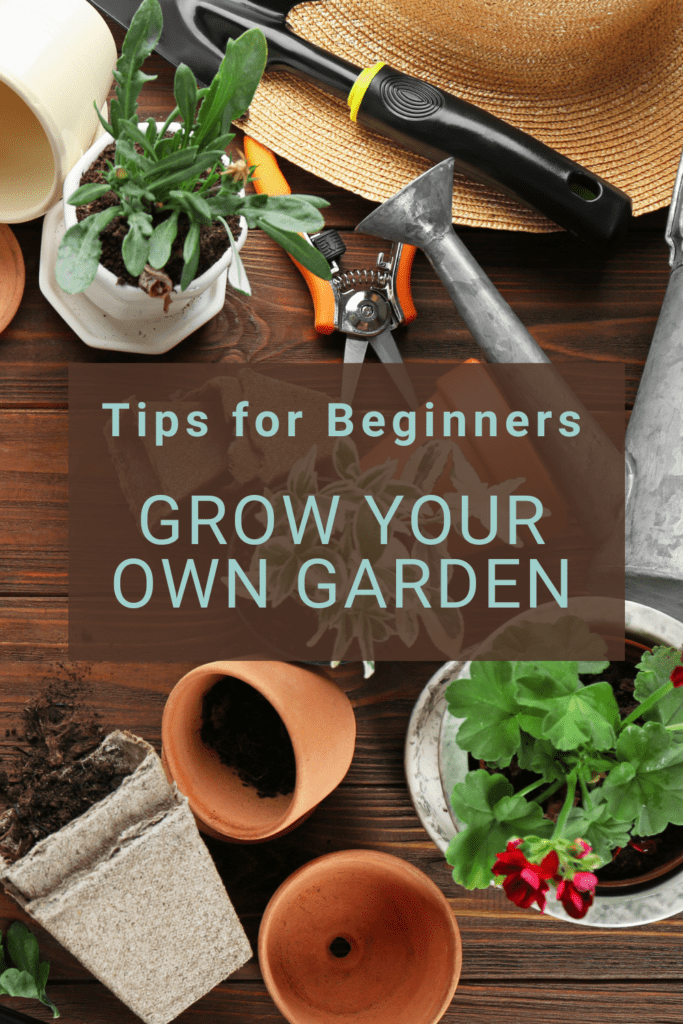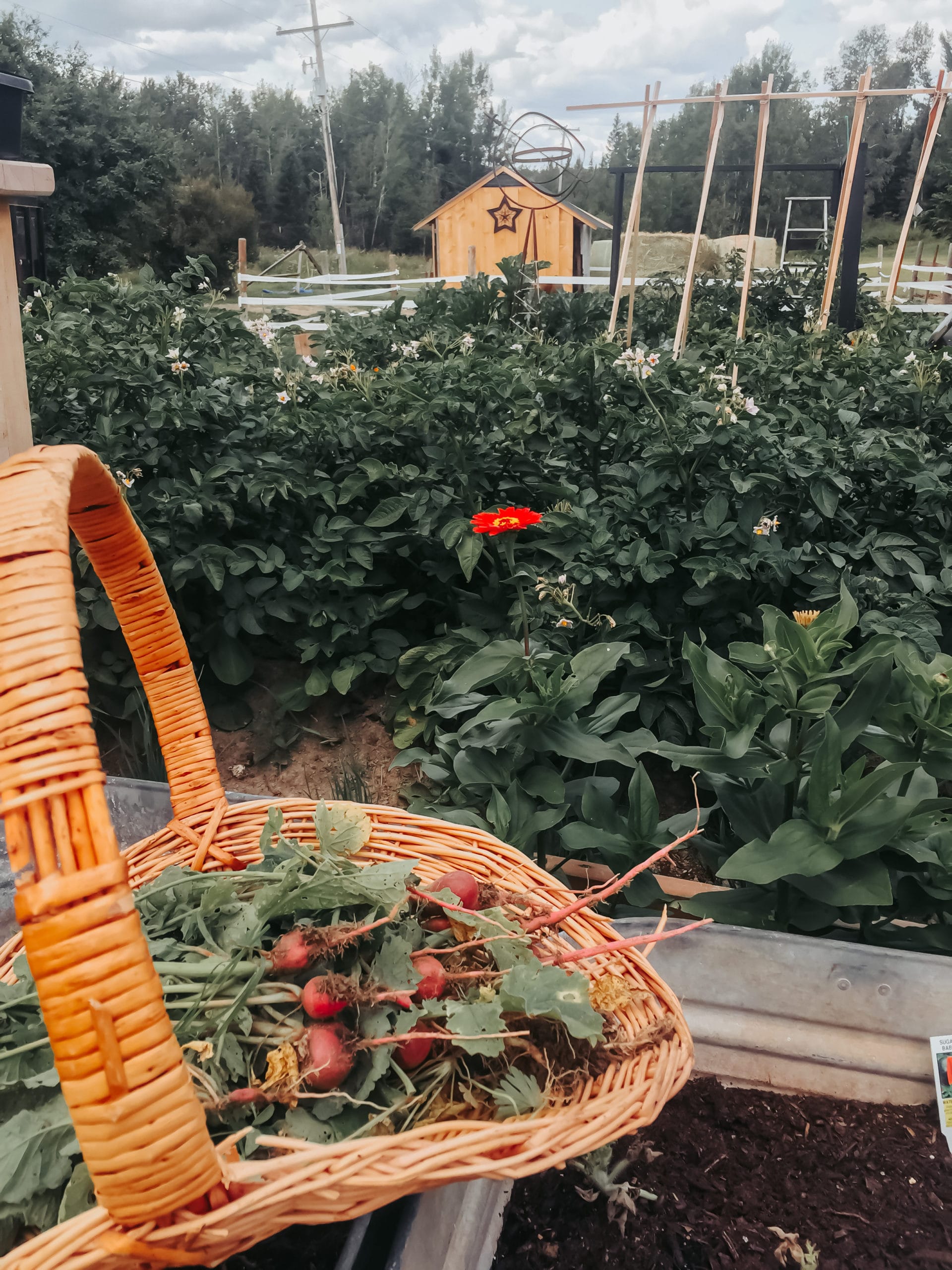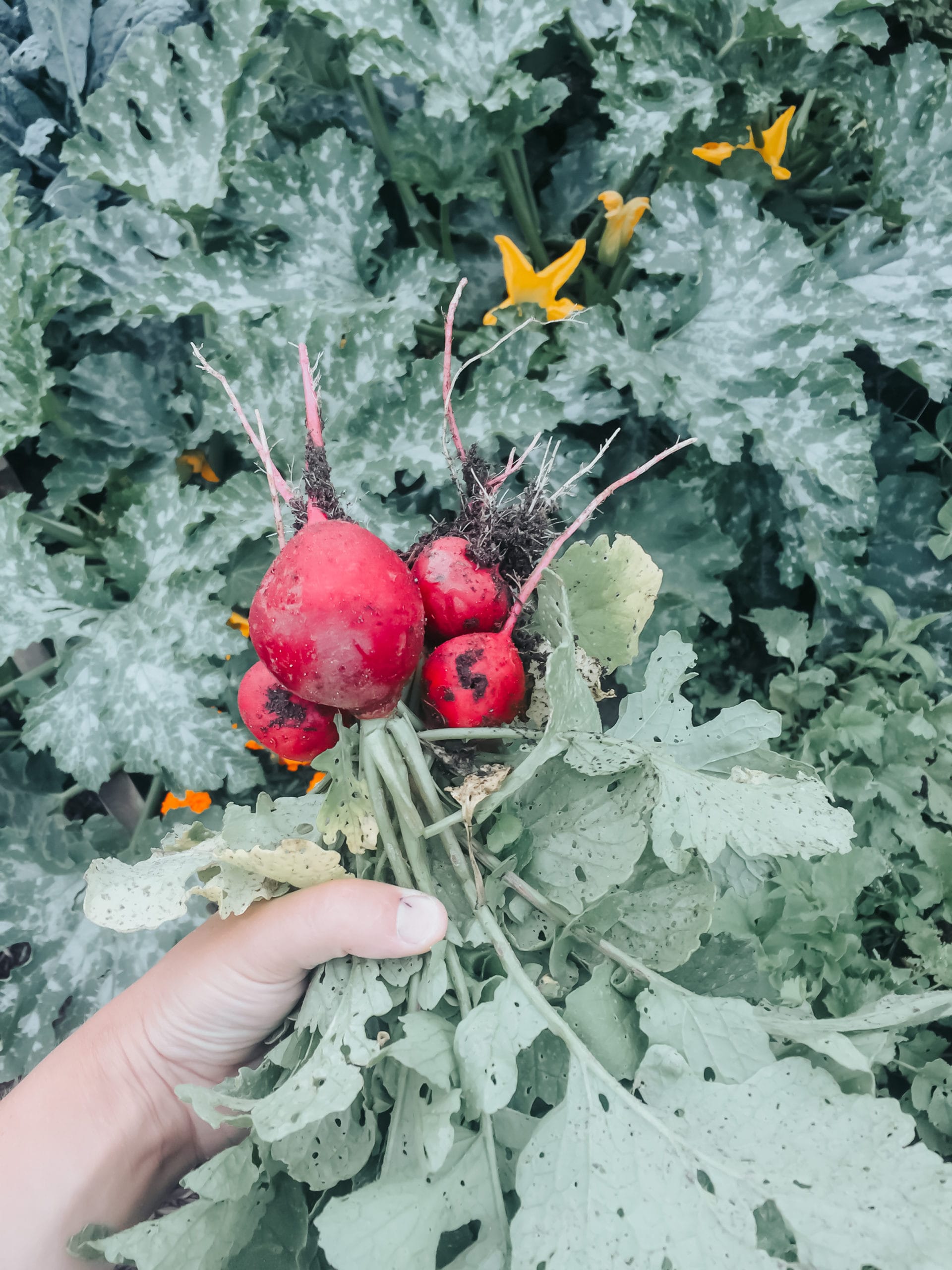What are the best tips to grow your own garden? I can tell you there is NOTHING like new potatoes straight from the ground to your plate, smothered in butter with a bit of garlic salt. The hunter(s) in your family are already going above and beyond to put ethically harvested, organic meat on your plate, so let’s take it a step further by providing home-grown vegetables too! Not only will you be providing a nutrition-packed meal for your family, but the learning experience that comes along with it is invaluable.
When you think of growing a garden, you’re likely thinking of rows upon rows of garden greens, spending hours tilling up the land and pulling weeds. Well, let me tell you, that sounds like a dream to me, but if it doesn’t to you, rest assured that it only has to be as complicated as you make it.
Here are our tips to grow your own garden:
Start small.
From the suburbs to the middle of nowhere, there is always the opportunity to grow a few vegetables. A wide variety can be grown in pots on the porch and requires very little maintenance. The possibilities are endless when it comes to the gardening world, and the benefits are extraordinary. I encourage you to dip your toes in this spring and give it a try.

Try beginner vegetables.
Lettuce – Are you a salad lover? Start by growing a few types of lettuce. You would be amazed at how wide a variety there is. Every dinner can use a side salad, and once that lettuce is ready for harvest, trust me, you will never want to buy lettuce from a store again. A fast-growing vegetable, lettuce is ready to harvest in as little as 45 days. It is also a vegetable that keeps on giving. You can harvest the outer leaves and leave the center to grow and keep on enjoying. Generally, a few lettuce stalks will more than feed a large family.

Tomatoes -Tomatoes are one of the most versatile vegetables. They grow in pots on the deck or in a garden. My suggestion for first-time gardeners is to purchase seedlings from a local greenhouse or farmer’s market. They are inexpensive and will pay for themselves. Once the plant starts producing fruit, there is so much that can be done with it. Eat them fresh, cooked, or preserved to last you through winter.
Herbs – I had no idea what I was missing until I started growing my own herbs. They are simple, do not need much space and the flavor and nutrients they provide are unbelievable. If you haven’t experienced fresh herbs in your meals, I encourage you to try them.

Potatoes – Potatoes are another easy variety to grow. They require more space, however, there are so many clever ideas online and on Pinterest to use your space wisely. For each seed potato you plant, you can expect to get about 5-10 potatoes!
Bush Beans – Usually when you think of beans you picture an overbearing vine. Well, there is a variety of beans that grow in a “bush” instead. They require little space and are easy to sprout from seed, directly sown into the ground. Generally, I plant a couple of varieties to enjoy fresh all season, as well as freeze to enjoy through the winter.
Is it worth growing your own garden?
Yes, it is definitely worth growing your own garden! Not only does it provide you with fresh and healthy produce, but it also saves you money on groceries and is a great way to get some exercise and fresh air. Additionally, gardening has been shown to reduce stress and improve mental health.
How can I grow my own garden?
To start your own vegetable garden, you’ll need to choose a location with plenty of sunlight, prepare the soil by adding compost and fertilizer, and decide which vegetables you want to grow. Some easy vegetables for beginners include tomatoes, lettuce, and green beans. You’ll also need to water your garden regularly and keep an eye out for pests and diseases.
Read: Fresh Tips for Starting A Garden
More tips for growing a garden:
- Choose the right location: The first step in growing your own garden is to choose the right location. Look for a spot that gets plenty of sunlight and has good drainage. If you’re planting vegetables, make sure the soil is rich in nutrients and has a pH level between 6.0 and 7.0.
- Decide what to plant: Decide what you want to plant in your garden. If you’re a beginner, start with easy-to-grow vegetables like tomatoes, cucumbers, and lettuce. You can also plant herbs like basil, parsley, and thyme.
- Prepare the soil: Before planting, prepare the soil by removing any weeds and adding compost or fertilizer. This will help your plants grow strong and healthy.
- Plant your seeds or seedlings: Plant your seeds or seedlings according to the instructions on the packet. Make sure to space them out properly and water them regularly.
- Water your garden: Water your garden regularly, especially during hot and dry weather. Make sure to water the soil, not the leaves, to prevent disease.
- Weed your garden: Weed your garden regularly to prevent weeds from taking over and competing with your plants for nutrients.
- Harvest your crops: Harvest your crops when they are ripe and ready to eat. This will encourage more growth and ensure that your plants stay healthy.
- Enjoy your fresh produce: Enjoy your fresh produce by cooking delicious meals with your homegrown vegetables and herbs. Not only will they taste better, but you’ll also save money and reduce your carbon footprint by growing your own food.





2 thoughts on “Essential Tips to Grow Your Own Garden Successfully”